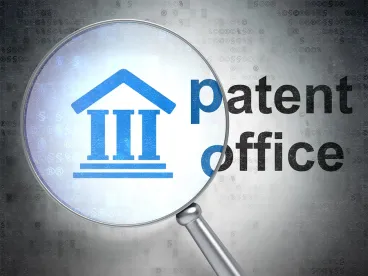The Federal Circuit has refused to uphold the dismissal of a complaint alleging that the Director of the Patent and Trademark Office (PTO) improperly issued instructions to PTAB judges regarding whether to institute requested patent review proceedings. The complaint alleges that the so-called Fintiv factors – initially set forth in two opinions designated by the former Director as precedential and recently clarified by Director memo and decisions – were improperly issued because they were not promulgated though notice-and-comment rulemaking per 4 U.S.C. § 553. The case, brought by Apple Inc. and other technology companies together with Edwards Lifesciences, was remanded to the district court in the Northern District of California for further proceedings on this issue.
Even though the Federal Circuit did not reach the merits of the claim, its March 13 ruling offers several insights on the contentious issue of discretionary denials and the broader issue of rulemaking at the PTO.
The Fintiv Factors and Instructions
As discussed in our prior blog, the PTAB’s decisions in NHK Spring Co. Ltd. v. Intri-Plex Techs. and Apple Inc. v. Fintiv, Inc. were designated as precedential in 2019 and 2020, respectively. Both decisions identified factors to be considered by the PTAB in deciding whether to deny institution of review under 35 U.S.C. §325(d), including whether similar art and arguments are being presented in co-pending litigation and whether any such parallel district court litigation would conclude before the PTAB issued a final decision on the merits. Generally, the criteria set forth in these decisions provided a basis for denying institution of petitions where there was co-pending litigation with overlapping issues that was either well-advanced or set for an early trial.
In a June 2022 memo, Director Vidal announced “several clarifications” to the Fintiv instructions after having received hundreds of comments in response to a request for comments (which was published in the Federal Register). Further clarifications were made thereafter in Director decisions issued in OpenSky v VLSI and CommScope v Dali Wireless. Generally, the Director’s clarifications increase the likelihood of institution of meritorious petitions, petitions re co-pending ITC cases, petitions where the petitioner stipulates to full estoppel in the co-pending proceeding (a so-called Sotera stipulation, a reference to the precedential PTAB decision in Sotera Wireless v. Masimo Corp.), and petitions where a fast trial date is set but statistics for that court indicate a longer median time to trial.
Apple et al.’s complaint was filed prior to the clarifications by the current director. The Federal Circuit opinion nonetheless identifies these as actions that would fall within the scope of any decision on the issues presented by the Apple et al. complaint. At the same time, perhaps in an attempt to demonstrate non-partisanship, the court stated that it was agnostic to whether the precedential Fintiv cases and/or the June 2022 Memo were considered.
Procedural Context
The complaint in this case was filed in the Northern District of California under the Administrative Procedures Act (APA), set forth at 5 USC §§ 701-706, which provides for action against a government agency. The complaint alleged that instructions issued by the Director of the Patent and Trademark Office regarding discretionary denials were improper on three grounds, namely, as: (1) contrary to the IPR provisions of the statute; (2) arbitrary and capricious; and (3) improperly promulgated without notice-and-comment rulemaking.
As stated in Section 701(a), the APA does not apply where “(1) statutes preclude judicial review” or “(2) agency action is committed to agency discretion by law.” The district court dismissed all grounds based on the first limitation, pointing to statutory provisions that make institution decisions unreviewable and noting that “the court ‘would have to analyze questions that are closely tied to the application and interpretation of statutes’ governing institution decisions.”
The Federal Circuit agreed that the first two grounds were not reviewable based on statutory prohibitions against review of institution decisions. Even though not specific to a particular decision, the Federal Circuit held that first two grounds “have institution as their direct, immediate, express subject” and were specific to the particular instructions given. The court concluded that “the IPR statute’s preclusion of review, as now settled by the Supreme Court based on statutory text, legislative history, and structure, must encompass preclusion of review of the content-focused challenges to the instructions at issue here.”
The Federal Circuit further found that at least Apple had standing because it is repeatedly sued for infringement and then files IPR petitions against the asserted patents, and the Fintiv instructions facilitate denial of institution of such IPRs. The Court noted that institution of Apple’s IPR petition was denied in the Fintiv case itself and found such harm likely to occur in the future, explaining:
“[T]he challenged instructions, which are plausibly alleged to cause more denials of institution than might otherwise occur, will continue causing harm in the form of denial of the benefits of IPRs linked to the concrete interest possessed by an infringement defendant — even though Apple cannot specify in advance individual IPR requests (filed with an infringement suit pending) that will be denied.”
The Court also found the standard for redressability was met because “[t]here is a genuine possibility that the instructions would be changed in a way favorable to Apple in a notice-and-comment rulemaking,” noting that this possibility had been “confirmed by the fact that the [current] Director, in response to comments, announced favorable clarifications in the June 2020 [sic – 2022] Memo.”
Precedential Decisions vs. Notice-and-Comment Rulemaking
In its introductory comments, the Federal Circuit’s opinion confirms several factors that support the Director’s autonomy and authority to deny review of patent challenges. It notes that the patent statute does not require institution of meritorious petitions for review. It confirms that the Director’s exercise of its discretion to deny institution is “final and nonappealable” pursuant to 35 USC 314(d), and (unless challenged on constitutional grounds) is protected from judicial review. It also explains that the Director is permitted to delegate its institution authority to the Board and can reverse a decision of the Board.
The opinion also identifies bases for the Director’s authority to designate past PTAB decisions as precedential – which is how the “instructions” at issue were established by the former Director. The opinion points to the Supreme Court’s decision in United States v. Arthrex, Inc. and 35 USC §316(a)(4), which states in relevant part, “The Director shall prescribe regulations …establishing and governing … the relationship of [IPR] review to other proceedings under this title.”
The Federal Circuit nonetheless found that neither § 701(a)(1) nor §701(a)(2) bars review of Apple et al.’s claim that the PTO’s guidance on discretionary denials was improperly promulgated without notice-and-comment rulemaking. In so finding, the court noted:
-
“The APA’s procedural requirements are enforceable apart from the reviewability of the underlying action, and, indeed, support several important functions wholly distinct from judicial review.”
-
There was no showing that the statute prohibits review of the “choice of announcement procedure.”
-
There was no justification to conclude that use or non-use of notice-and-comment rulemaking is committed to agency discretion.
-
A prior Supreme Court decision (Lincoln v. Vigil) supports reviewability because it distinguished a decision on the merits of a particular agency decision from the process used to make the decision.
The court thus remanded the third ground to the district court for further proceedings and, ultimately, a decision as to whether or not the PTO must comply with notice-and-comment rulemaking requirements in its guidance on discretionary denials. It thus appears likely that this issue will be addressed by the Court in a further, future appeal.
Takeaways
The so-called Fintiv factors established by the former Director’s designation of the NHK and Fintiv decisions as precedential resulted in proportionately more IPR petitions being denied institution. The current Director’s guidance memos have provided clarifications that appear to have made discretionary denial far less likely to occur and that help ensure institution based on highly meritorious petitions. However, neither the designation of opinions as precedential nor the mere issuance of guidance memos complies with notice-and-comment rulemaking requirements. Imposing requirements of notice-and-comment rulemaking are more cumbersome and slow. However, the very nature of the rulemaking process could help to ensure that such decisions are also informed by public and stakeholder opinion and are less likely to change at the whim of an incumbent PTO Director.





 />i
/>i


